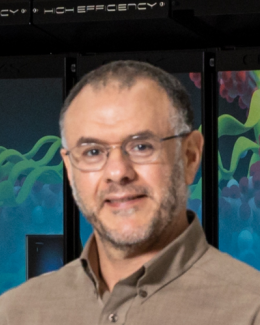Abstract
In the studies of materials, experimental measurements often serve as the reference to verify physics theory and modeling; while theory and modeling provide a fundamental understanding of the physics and principles behind. However, the interactions and cross validation between them have long been a challenge even to-date. Not only that inferring a physics model from experimental data is itself a difficult inverse problem, another major challenge is the orders-of-magnitude longer wall-clock time required to carry out high-fidelity computer modeling to match the timescale of experiments. We envisage that by combining high performance computing, data science, and edge computing technology, the current predicament can be alleviated, and a new paradigm of data-driven physics research will open up. For example, we can accelerate computer simulations by first performing the large-scale modeling on high performance computers and train a machine-learned surrogate model. This computationally inexpensive surrogate model can then be transferred to the computing units residing closely to the experimental facilities to perform high-fidelity simulations at a much higher throughout. The model will also be more amenable to analyzing and validating experimental observations in comparable time scales at a much lower computational cost. Further integration of these accelerated computer simulations with an outer machine learning loop can also inform and direct future experiments, while making the inverse problem of physics model inference more tractable. We will demonstrate a proof-of-concept by using a quantum Monte Carlo application, Dynamical Cluster Approximation (DCA++), to machine-learn a surrogate model and accelerate the study of quantum correlated materials.




